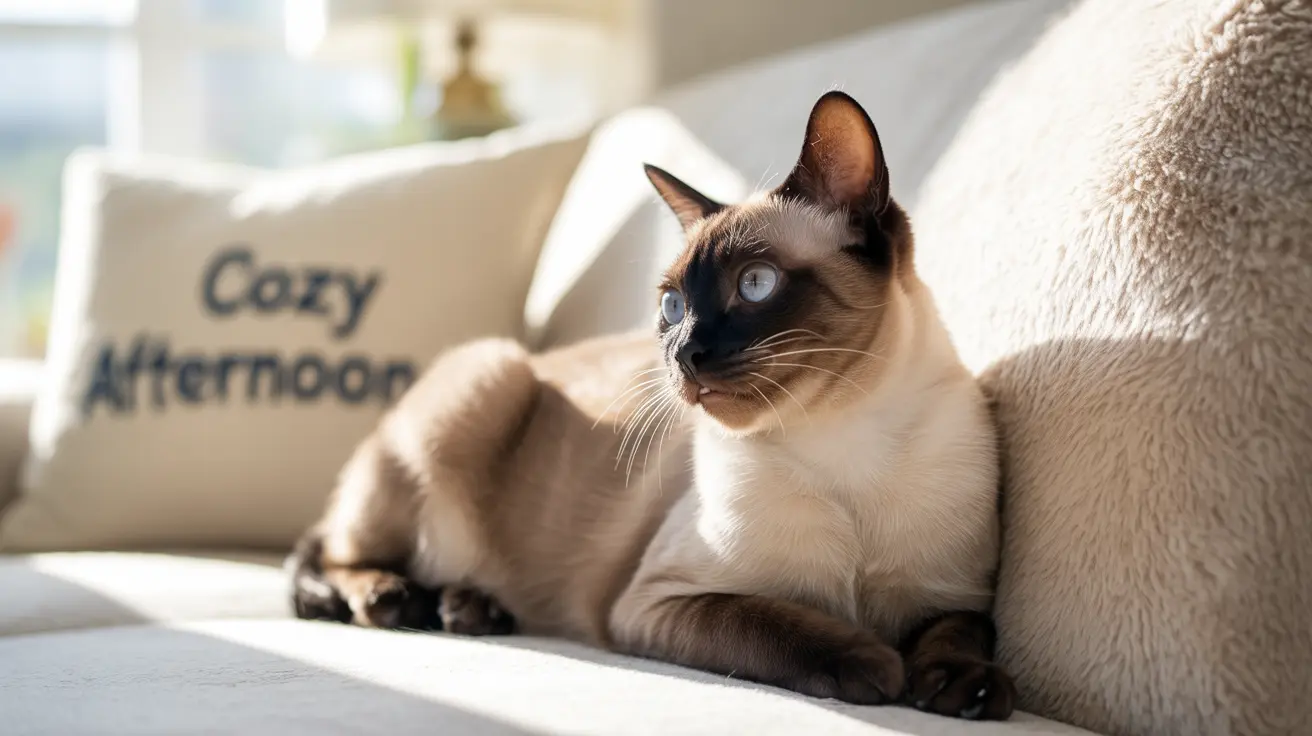Have you ever buried your face in your cat's fur and wondered about their unique scent? While cats are known for their meticulous grooming habits and generally clean nature, they do have a distinctive smell that many cat owners find comforting and pleasant.
Let's explore the fascinating world of feline scents, from their natural musk to the various factors that influence how cats smell, and what different odors might indicate about your pet's health.
The Natural Scent of Healthy Cats
A healthy cat typically has a subtle, pleasant aroma that many describe as sweet and slightly musky. This scent is often compared to the fresh, warm smell of laundry dried in sunshine or the cozy comfort of a lazy summer afternoon. Unlike dogs, cats generally maintain a lighter, less noticeable scent due to their fastidious grooming habits.
The natural cat smell comes from several sources, including:
- Their fur and skin oils
- Natural pheromones
- Environmental factors
- Diet and health condition
Understanding Your Cat's Scent Communication
Cats are highly sophisticated when it comes to scent communication. They possess multiple scent glands located throughout their bodies, including their:
- Cheeks and chin
- Forehead
- Paw pads
- Base of tail
- Along the tail
When your cat rubs against you or furniture, they're not just showing affection – they're actually marking their territory and leaving behind important chemical messages for other cats.
When Cat Smells Indicate Health Issues
While cats naturally maintain a pleasant scent, certain odors can signal potential health concerns. Being aware of these smell changes can help you identify when your cat needs veterinary attention:
Common Problematic Odors
Strong or unusual smells might indicate:
- Dental disease (bad breath)
- Skin infections (yeasty or putrid smell)
- Ear infections (musty odor)
- Anal gland issues (fishy smell)
- Urinary tract infections (strong urine odor)
Pleasant Scents That Cats Enjoy
Just as cats have their own unique smell, they also respond to various scents in their environment. Many cats show particular interest in:
- Catnip and other mint family plants
- Silvervine
- Valerian root
- Fresh grass
- Certain herbs and spices
Frequently Asked Questions
What does a healthy cat smell like, and is their natural scent noticeable?
A healthy cat has a mild, pleasant scent that's often described as sweet and musky. While not overwhelming, their natural scent is noticeable when you're close to them, particularly around their head and neck area.
Why do cats rub their faces on objects, and what scents are they leaving behind?
Cats rub their faces on objects to mark territory and communicate through pheromones. They leave behind chemical signals from their facial glands that can indicate friendship, territory marking, or stress levels.
What do unusual cat smells indicate about potential health issues?
Unusual smells can indicate various health issues: strong, unpleasant odors might suggest infection, while sweet or musty smells could indicate diabetes or fungal infections. Any sudden change in your cat's natural scent warrants veterinary attention.
Do cats enjoy certain scents like catnip or lavender, and how do they react?
Cats are particularly drawn to catnip and similar plants, responding with behaviors like rolling, rubbing, and increased playfulness. However, each cat's scent preferences are individual, and not all cats react to the same scents.
How can I reduce unpleasant odors from my cat's litter box or grooming habits?
Maintain regular litter box cleaning, use quality cat litter, ensure proper ventilation, and keep up with your cat's grooming routine. Consider using pet-safe air purifiers and maintaining a consistent cleaning schedule for your home.






